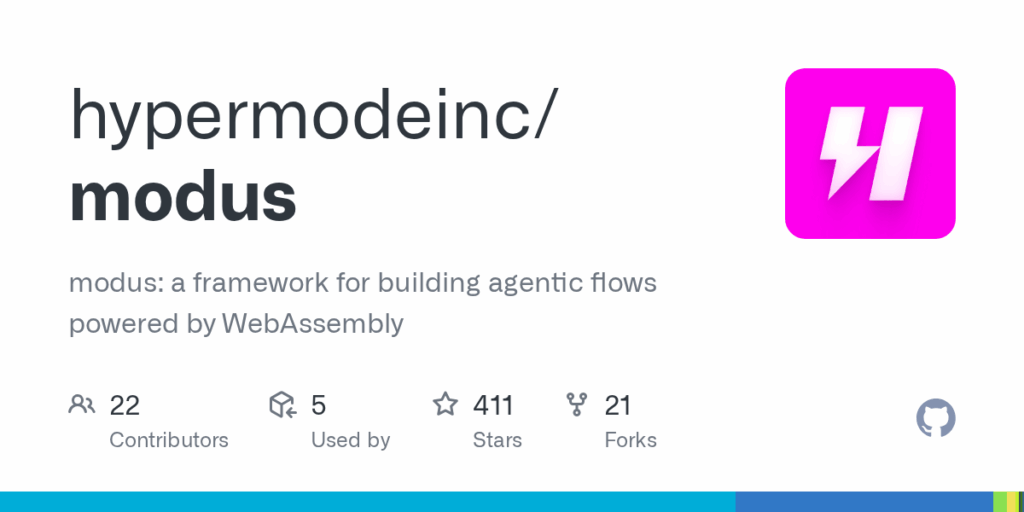modus
Basic Information
Modus is an open-source, serverless framework for building agentic systems and AI applications using WebAssembly. It is designed to let developers write small functions in supported languages, have those functions compiled and optimized for the host environment, and expose them as production-ready, low-latency endpoints. The runtime extracts function metadata, prepares invocation plans, compiles and caches modules in memory, and generates an API schema from an app manifest. Execution happens in a sandboxed environment where host functions provide access to models, data, and services without exposing credentials to user code. Modus is optimized for sub-second response times and can be self-hosted or deployed using Hypermode’s hosting and tooling. The project currently supports Go and AssemblyScript and includes a CLI for creating and running apps locally.








